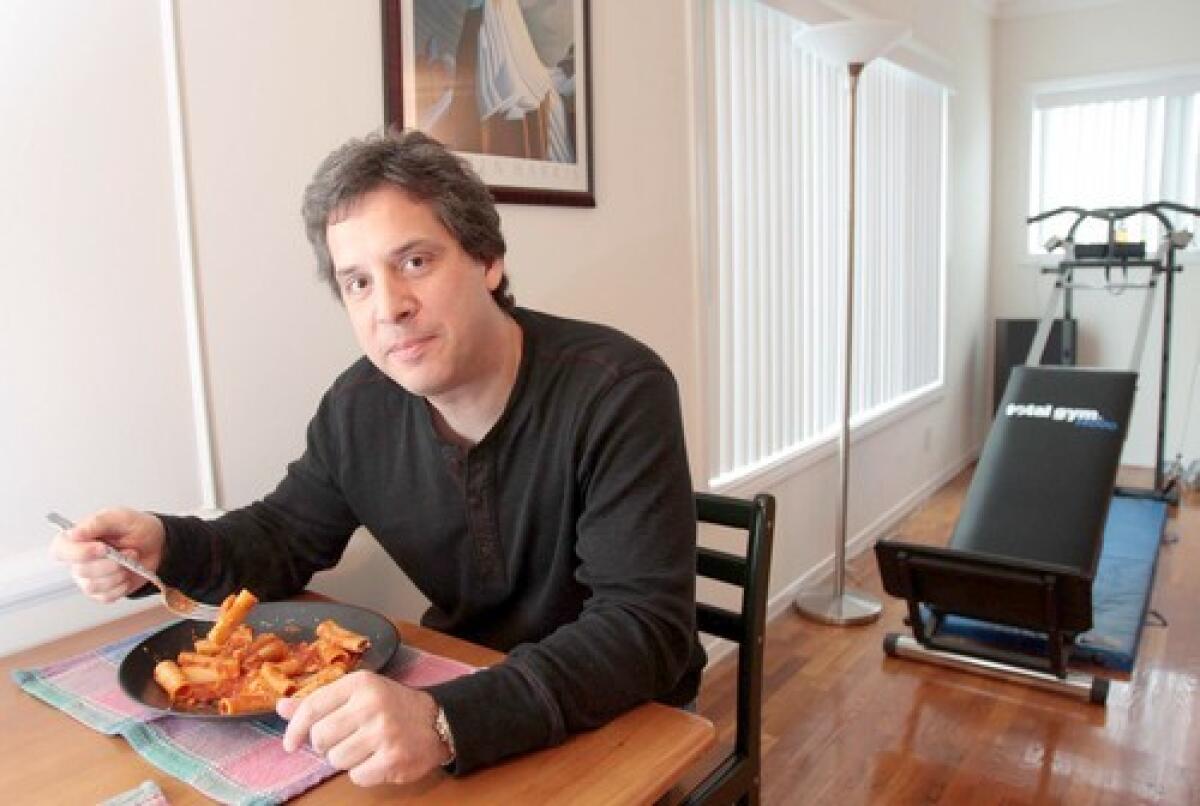‘I try to stretch everything’

Paul Marangoni had his epiphany at a Ralphs, where he suffered what he calls his “first triple digit.” He had never spent more than $100 at the grocery store.
“That’s when I really woke up,” the West Los Angeles resident says.
Marangoni, 45, drives less and walks more. He cooks more often -- pasta, chicken, chili -- and if the bananas turn black, he doesn’t toss them; he makes banana-oatmeal cookies.
“With the economy on the verge of tanking, I’m just trying to bear down,” he says. “I try to stretch everything.”
This from a man who drives a Porsche.
A software developer who moved from Canada eight years ago on a work visa, Marangoni earns about $75,000 a year and pays $1,500 a month for rent.
With gasoline prices rising, he invested $8,000 in a Ducati Monster motorcycle that got more than 50 miles per gallon. It seemed like a good idea until the accident. His bike totaled and his hip injured, he retreated to four wheels, selling his 2000 Porsche 911 with 120,000 miles on the odometer and buying a $50,000 Porsche Cayman. The decision was based on “safety and handling,” Marangoni says without a scintilla of buyer’s remorse. “After driving the other Porsche for eight years, I can’t drive a car that doesn’t handle as well.”
Besides, there are other ways to save money.
He canceled his call-waiting telephone service; uses Skype, an inexpensive Internet service, to make long-distance calls to family in Canada; and for the most part makes do with the clothes in his closet. When he must make a purchase he looks online for deals. If he eats out -- a luxury he has pared in half -- he often walks to nearby restaurants like the Farm of Beverly Hills and Il Fornaio.
He scrutinizes every bill. He persuaded a credit card company to lower his rate to 11% from 17%. At his request, AT&T analyzed his text-messaging patterns and switched him to a plan that shaved about $5 off his monthly bill.
“Over the course of a year, all these things add up,” Marangoni says. “People should know that they have to question everything. All companies are going to have to bend over backward for consumers now because everyone’s going to be losing business.”
No matter how many corners he cuts, Marangoni figures that when it comes time to buy a house, he’ll have to move. Despite the recent slowdown, the median home price in Southern California is $415,000, compared with $201,100 nationally.
“I’m surprised that more people aren’t really waking up to what’s going on,” he says. “It seems like everyone’s got their head in the sand.”
-- Leslie Earnest
More to Read
Inside the business of entertainment
The Wide Shot brings you news, analysis and insights on everything from streaming wars to production — and what it all means for the future.
You may occasionally receive promotional content from the Los Angeles Times.









